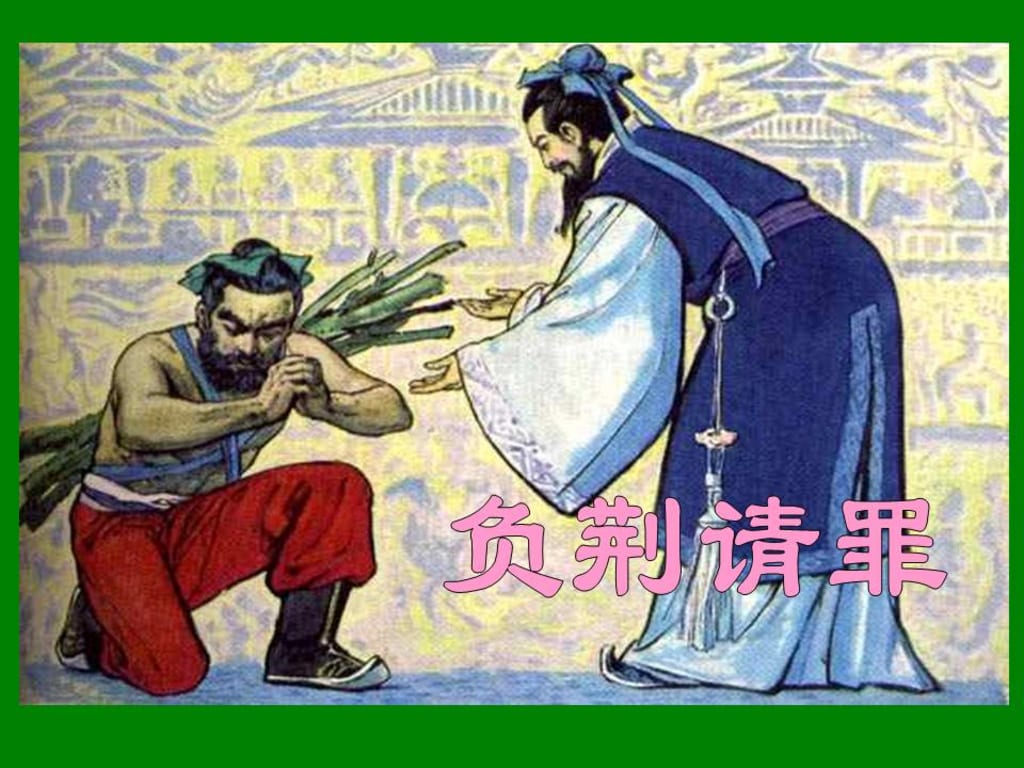
Introduction
The idiom "Fu Jing Qing Zui" or "Kneel and Beg for Forgiveness with a Thorn-Bearing Branch" is one of the most famous stories in Chinese history. It is a tale of bravery, humility, and redemption that has inspired people throughout the centuries.
Background
The story takes place during the Warring States period (475-221 BC), a time of great turmoil and conflict in China. The state of Qin was one of the most powerful and aggressive states at the time and had conquered many other states. The ruler of Qin, King Zhaoxiang, was known for his harshness and cruelty towards his subjects.
The Story
One day, a man named Jing Ke, who was from the state of Yan, came to the court of King Zhaoxiang bearing a thorn-bearing branch as a gift. This was a traditional way of showing submission and begging for forgiveness.
However, hidden inside the thorn-bearing branch was a dagger, which Jing Ke intended to use to assassinate the king. The plan was part of a larger plot by the state of Yan, along with another state called Qi, to overthrow the Qin dynasty.
Jing Ke presented the branch to the king and knelt before him, begging for forgiveness for the wrongs of his state. However, the king suspected that there was something amiss and did not accept the gift. Instead, he ordered his guards to seize Jing Ke.
Jing Ke drew his dagger and launched a surprise attack on the king. However, the king managed to avoid the fatal blow and fled the scene. Jing Ke was eventually captured and executed.
Despite Jing Ke's failure, the story of his sacrifice became legendary. His willingness to risk his life to bring down an oppressive regime inspired many others to take action against injustice.
Years later, another man named Li Si, who served as a prime minister under the same king, also chose to perform the act of "Fu Jing Qing Zui" or "Kneel and Beg for Forgiveness with a Thorn-Bearing Branch". However, unlike Jing Ke, Li Si did not have any malicious intentions. Instead, he did it as an act of penance.
Li Si had made a grave mistake by advocating for the execution of several innocent officials. He realized his wrongdoing and decided to take responsibility for his actions. He presented himself before the king with a thorn-bearing branch and knelt before him, begging for forgiveness.
The king was initially suspicious, but eventually accepted Li Si's apology. He forgave Li Si and reinstated him as his prime minister.
The Significance
The stories of both Jing Ke and Li Si embody the values of bravery, humility, and repentance. Jing Ke's willingness to risk his life to bring down an oppressive regime showed that even in the face of great power and cruelty, one could still find the courage to stand up for what was right. Li Si's act of penance demonstrated that even those in positions of great power and influence could admit their mistakes and seek forgiveness.
The phrase "Fu Jing Qing Zui" or "Kneel and Beg for Forgiveness with a Thorn-Bearing Branch" has come to represent the act of admitting wrongdoing and seeking forgiveness. It is a reminder that even the most powerful and influential people are not above making mistakes or committing wrongs, and that true strength lies in admitting these mistakes and taking responsibility for them.
Conclusion
The story of "Fu Jing Qing Zui" or "Kneel and Beg for Forgiveness with a Thorn-Bearing Branch" is a timeless tale that has inspired generations of people in China and beyond. It embodies the values of bravery, humility, and repentance, and serves as a reminder that even in the darkest of times, there is always hope for change and redemption. The stories of Jing Ke and Li Si remind us that true strength lies in admitting our mistakes and taking responsibility for our actions.





Comments
There are no comments for this story
Be the first to respond and start the conversation.